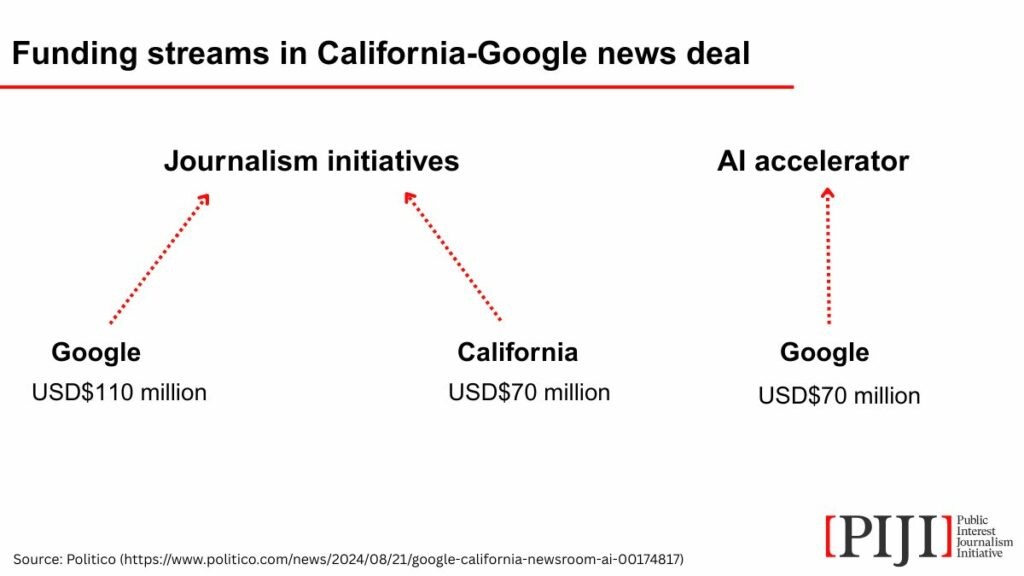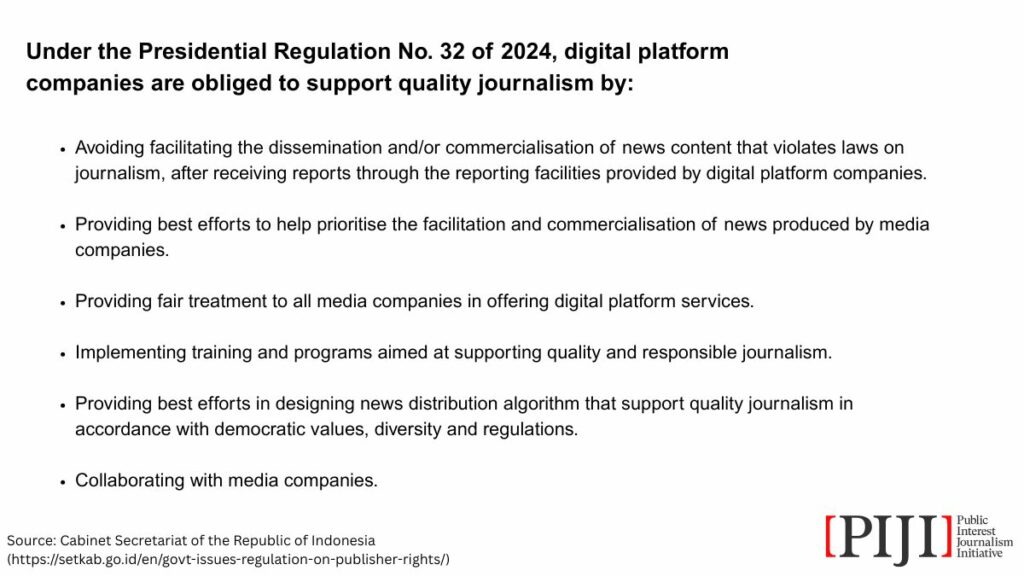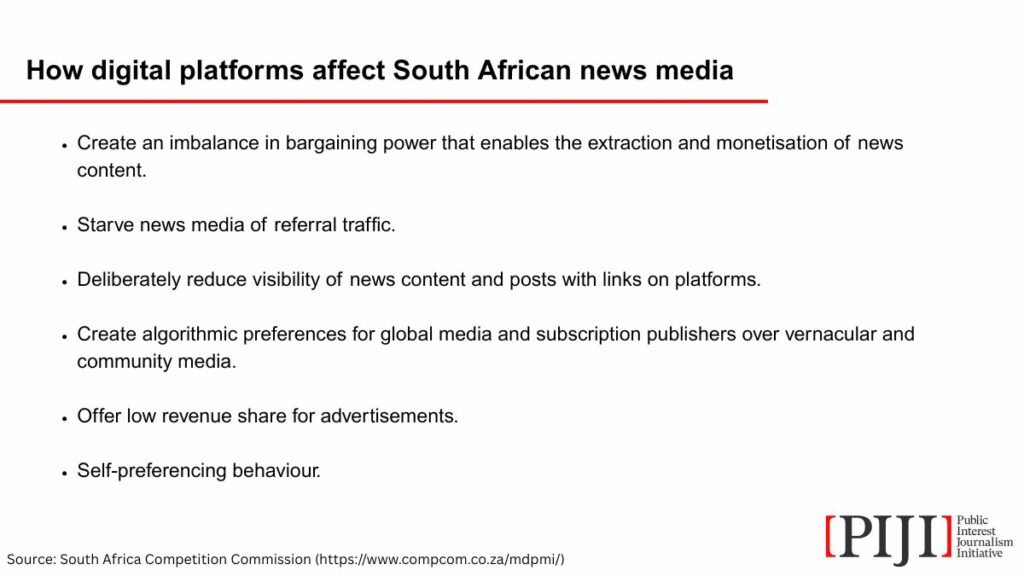Months after the Australian government unveiled measures to incentivise tech giants to comply with the News Media Bargaining Code, no progress has been made.
The News Bargaining Incentive, introduced after Meta’s 2024 decision to not renew or make new commercials deals for Australian news content, builds on the 2021 Code by including a charge and an offset mechanism. This would charge eligible platforms for refusing to enter or renew commercial agreements with news publishers, and offset liability for platforms that do enter these agreements.
As the country waits for the government to follow through on its commitment to protect and support Australian public interest journalism, the same fight wages on internationally.
The push-and-pull between news organisations and companies like Meta and Google only grows more heated amid the increasing dominance of online platforms who either enact punitive punishments or proactive lowball financial incentives to stall regulatory action.
Recent examples include Meta’s apparent punishment of Poland for strengthening local news media bargaining power by limiting visibility of key elements of news posts on Facebook, along with the stalling of Taiwan’s development of a news bargaining act following a NT$300 million ($15.3 million) commitment from Google.
From major triumphs to muted efforts, here are some of the biggest international developments in news media bargaining agreements over the past 12 months.
Canada
As one of the first countries to follow Australia’s lead, Canada sought to improve on the Code with its Online News Act.
In effect since 2023, the Act aims to ensure online platforms compensate news companies for their content by encouraging voluntary commercial deals.
Google and Meta’s reactions to Canada’s legislation were near-identical to the initial retribution Australia experienced while finalising its own Code; Meta blocked access to news across its platforms, and Google threatened to do the same after initially ‘testing’ the measure while the Act was still working its way through Canadian Parliament.
Almost two years on, news remains blocked on Meta platforms in Canada, although some users have worked around the measure by posting screenshots or text of news articles.
While Meta stands firm, the government softened its own stance by ending its retaliatory boycott of advertisements on Meta platforms, allocating up to CAD$100,000 ($111,578) to a Meta campaign promoting a GST rebate in 2025. The ad-buy reportedly began in late January, just a few months ahead of the country’s April federal election.
Relations with Google have been smoother, with the company securing a five-year exemption from the Act in return for paying CAD$100 million ($111 million) annually to media organisations.
Canadian Journalism Collective began distributing the first portion of Google’s payments to eligible news organisations in March 2025. Each is expected to receive between CAD$6806 ($7595) and CAD$17,000 ($18,973) per full-time employed journalist, depending on field.
As of 23 April, 108 news organisations received funding totalling more than CAD$22 million ($24 million).
Also in April, Canada’s broadcast and communications regulator brought into effect a cost-recovery rule which saw a levy charged to Google for the cost of enforcing the Act. This charge may vary from year to year and does not have an upper limit.
United States
Instead of a national approach, especially as the current Trump administration is closely tied with tech giants, the US has scattered state-led attempts to recoup money for local media organisations.
Awaiting a state senate vote as of May 2025, Oregon Senate Bill 686 requires dominant digital platforms to negotiate payments with news publishers, enter arbitration to settle what percentage of their ad revenue news publishers would receive, or donate to a program designed to distribute funds to small publishers.
If passed, it would generate an estimated US$122 million ($189 million) annually from Google and Meta payments, although Meta threatened to end news availability on its platforms if that comes to pass.
In Washington, proposed Senate Bill 5400 would introduce a tax surcharge on search engine and social media companies that utilise local news content to raise an estimated US$20 million ($31 million) annually for a journalism grant program.
In August 2024, California shelved a bill which would have forced companies like Google and Meta to pay news outlets for distribution of their content.
Instead, the state struck a deal with Google for a US$250 million ($388 million) five-year co-funding commitment earmarked for Californian newsrooms and an AI accelerator. This came after Google temporarily blocked news access in searches and launched multiple ad campaigns attacking the original bill.
Reactions were mixed, with some journalism groups criticising the smaller figure compared to Canada’s deal, the lack of required change of Google’s operations, and the funding of AI, which is considered a significant threat to journalists’ jobs.
In Illinois, the Illinois Journalism Preservation Act (initially filed in February 2024, and refiled in January 2025) would require tech giants to compensate news organisations for content used on their platforms.
As of May 2025, the progress of the bill is effectively paused as State Senator Steve Stadelman says he is attempting to find a way to work with other states and increase leverage.
Meta previously threatened to block news content from its platforms if the bill becomes state law.
New York State’s bargaining code bill S4401 would require tech platforms to pay news publishers compensation for use of journalists’ work, with proceeds to be reinvested in newsrooms. As of May 2025, the bill is in of the Senate Committee.
Indonesia
In August 2024, regulation came into force in Indonesia requiring digital platforms to pay news outlets that provide them with content.
Presidential Regulation No. 32 of 2024 aims to see digital platforms support Press Council-verified local news companies by entering partnerships in the form of paid licences, data sharing or revenue sharing.
When introducing the regulation, the government said an independent committee would be formed to ensure digital platforms fulfil their responsibilities to the news companies.
In response, Meta said the new law did not mean it would have to start paying for news content posted to its platforms in Indonesia.
As of May 2025, there has been little update on the enforcement of the regulation or the compliance of digital platforms. However, in 2025 a representative of the Indonesian Journalists Association blamed lack of regulatory protection for recent mass layoffs in the local media sector.
South Africa
A Media and Digital Platforms Market Inquiry provisional report released in February 2025 found quality and consumer choice of South African news was negatively affected by several factors.
The annual loss suffered by news publishers due to Google search alone in 2023 was estimated to range between from R300 million ($25 million) to R500 million ($42 million).
The report recommended Google compensate South African news media for the estimated annual loss, adjust its algorithm to address the under-representation of local media and become more transparent about audience insights.
Google rejected the claim it had taken disproportionate value from publishers, although ahead of the report’s release, the company partnered with the Association of Independent Publishers to establish the Digital News Transformation Fund, committing R114 million ($9.6 million) over three years to funding small, local and independent South African news publishers.
As of May 2025, Google has yet to confirm whether it will repay the annual losses outlined in the recent report and accede to other recommendations. The report gave a recommended implementation period of six months.
Other suggested remedies for the actions of companies like Meta and X included making annual financial contributions to local representative press and broadcasting bodies, and the introduction of a 5-10 per cent digital advertising tariff or levy for failure to implement the report’s recommended remedies or for future deprecation of news.
The report also critiqued Australia’s News Media Bargaining Code, noting that it disproportionately benefited larger news companies and does nothing to address the underlying harms caused by tech giants, such as traffic loss from algorithmic updates.
Written by Sezen Bakan


